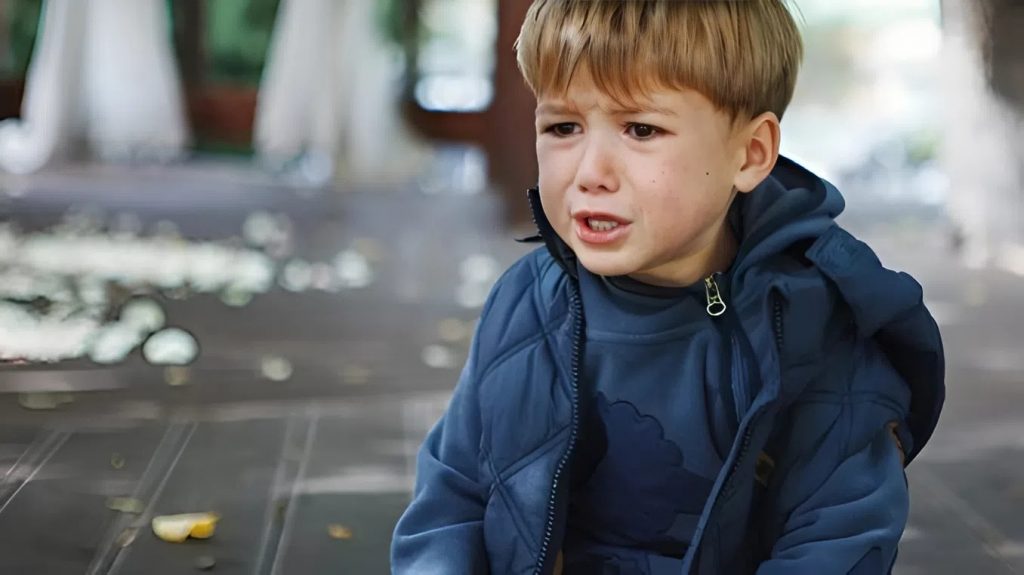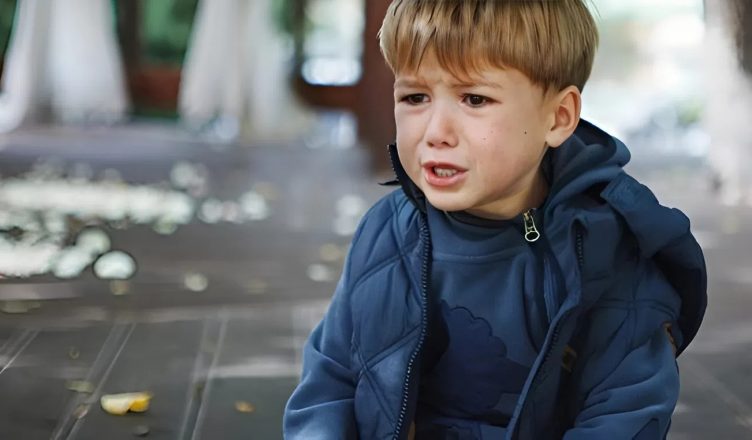He stood in the corner, silent… The classroom was full of laughter, music, and the rustling of colorful paper.
It was the last day of school — a celebration.
Each child was about to receive a small gift, wrapped in shiny foil.
Each one… except for him.
A small, quiet boy stood in the back, watching as the teacher handed out the packages.
When she reached the end of the table, there were no gifts left.
“Miss, what about him?” asked a girl from the front row.
The teacher hesitated, her smile fading.
“His mother didn’t bring the money,” she said softly.
For a moment, everything froze.
The laughter stopped. The whispers died.
The boy lowered his head. His fingers clutched the edge of his desk.
He didn’t understand why — only that everyone else was smiling, and he wasn’t.
The cruelty of children is often unintentional — but it cuts the deepest
“Didn’t your mom have money?”
“Are you poor?”
“Guess you don’t deserve a present then!”
The words came like tiny knives — sharp, fast, and thoughtless.
The teacher tried to change the subject, but the damage was done.
The air in the classroom grew heavy.
And the boy’s heart sank lower with every giggle and every whisper behind his back.

When the others went home, he stayed behind.
He sat by the window, watching the janitor sweep the shiny wrappers from the floor.
On his desk sat a small napkin with a few crumbs — all that was left from the celebration.
He didn’t cry. He just sat there, silently, trying to swallow the lump in his throat.
What the classmates did
Some looked away — ashamed.
Others laughed quietly, repeating what they’d heard at home:
“If you don’t pay, you don’t get anything.”
No one said, “That’s not fair.”
No one stood up for him.
And that silence — that cold, heavy silence — hurt more than any insult could.
The next morning, he came back to school.
Same worn-out shirt, same broken zipper on his backpack.
No one noticed him.
No one knew that his mother had spent the night crying, holding her empty wallet.
She had chosen between paying for the “gift fund” and buying food.
And like any mother, she chose to feed her son.
The teacher’s guilt
That night, the teacher couldn’t sleep.
She kept seeing his eyes — not angry, not accusing, just quietly broken.
The next day, in the teachers’ lounge, she said:
“We can’t leave children out because their parents can’t pay.”
But someone replied coldly:
“Rules are rules. It wouldn’t be fair to the others.”
She nodded, but deep down she knew — fairness without kindness isn’t fairness at all.
It’s cruelty, disguised as order.
Real poverty isn’t about money
That day, the boy learned a lesson no child should ever learn:
That being poor is something to be ashamed of.
He didn’t remember the games or the decorations.
But he would always remember the looks, the whispers, the silence.
Years later, he could still see that classroom, still feel the sting of being “the one who didn’t get a gift.”
He learned something else too: that silence can be the loudest kind of pain.
What humanity truly means
Humanity isn’t about following rules — it’s about compassion.
It’s about seeing someone left out and doing something, no matter how small.
One smile, one kind word, one gesture — that’s all it would have taken.
But no one did it.
A few days later
A small box arrived at the school with no return address.
The teacher opened it carefully.
Inside was a neatly wrapped gift and a note that read:
“For the boy who didn’t get anything.
Every child deserves to feel happy.”
The teacher cried.
She realized there were still people in the world who understood what kindness truly meant.
When she handed the box to the boy, he didn’t say a word.
He just smiled — shyly, sincerely.
Not because of the toy inside,
but because, for the first time in a long time, he felt seen.
